To improve research assessment practices in academic institutions, it is critical to understand the institutional…
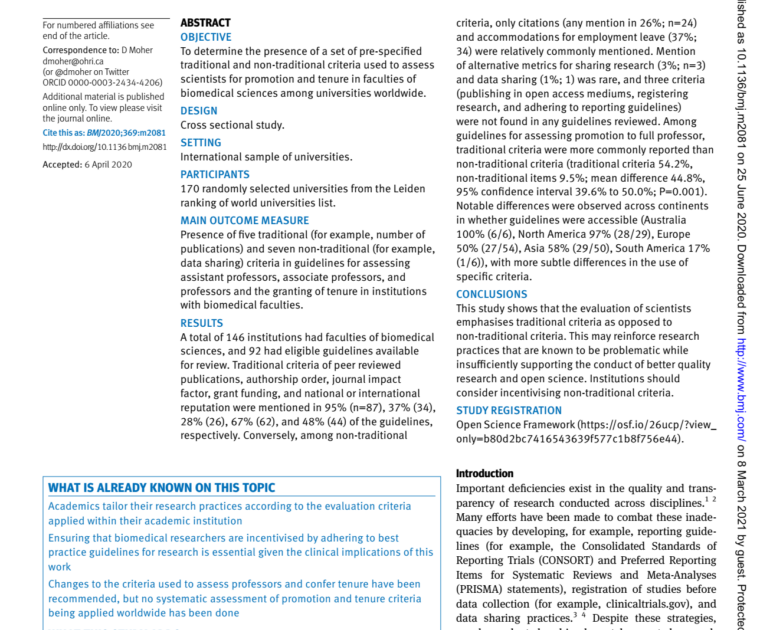

To improve research assessment practices in academic institutions, it is critical to understand the institutional…
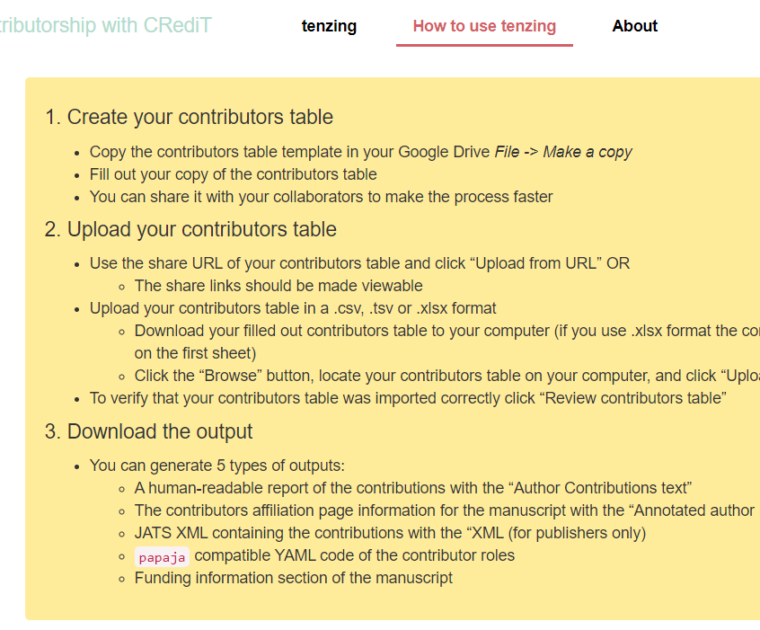
Reporting of who did what is important to give researchers the credit they deserve. Standards…
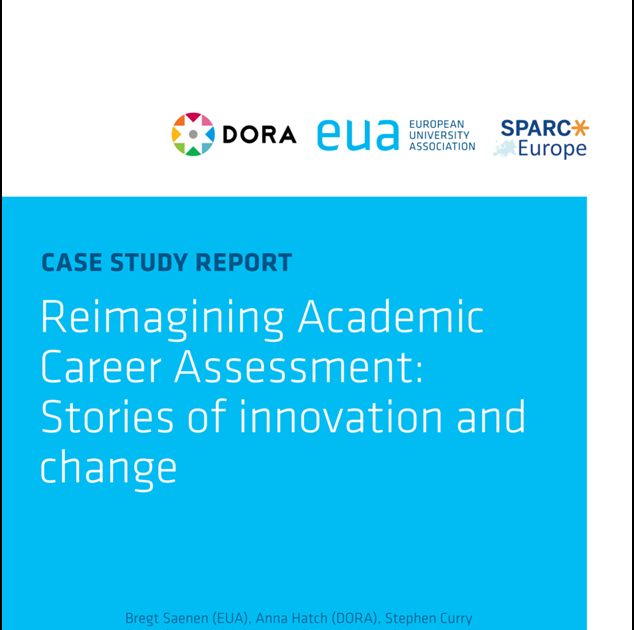
This report and the accompanying online repository bring together and analyze case studies in institutional…
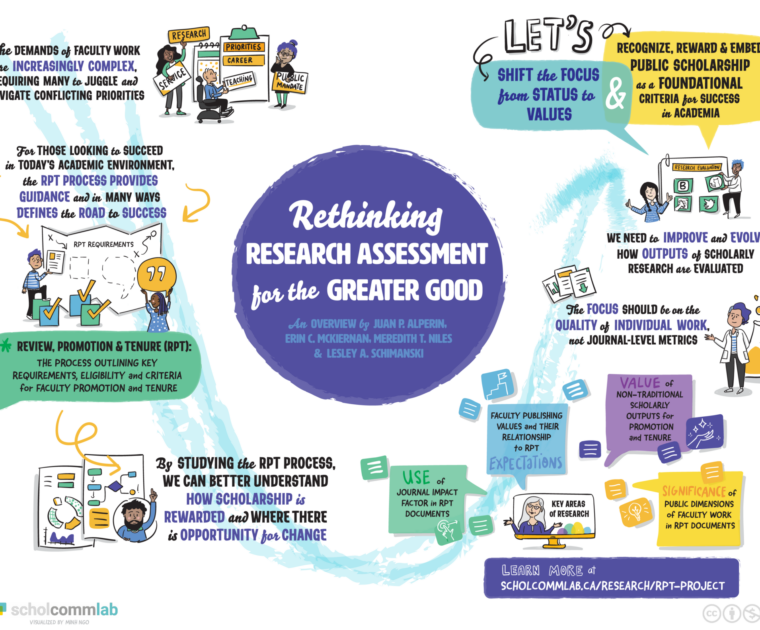
The ScholCommLab in Canada conducted a multi-year project examining more than 850 review, promotion, and…
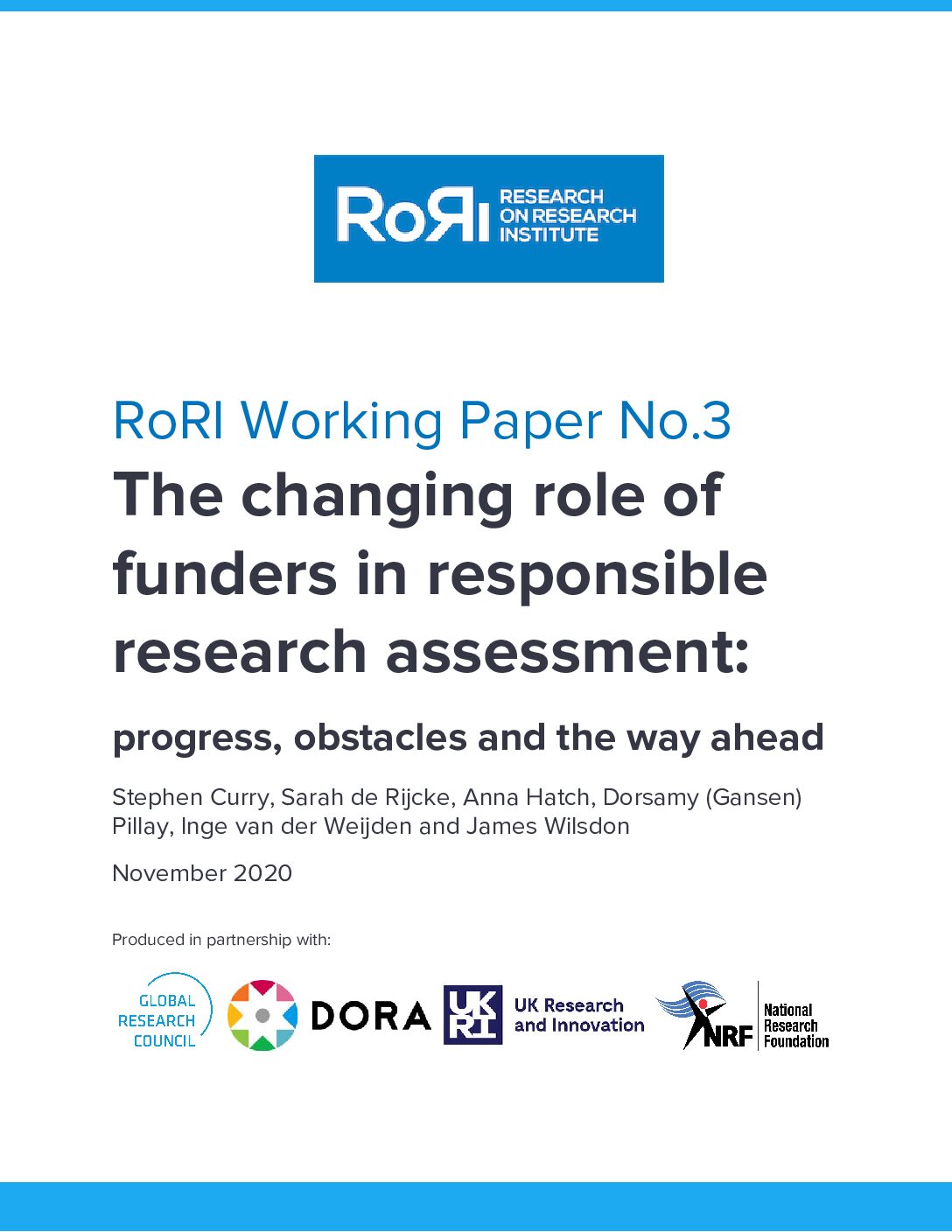
In partnership with the Research on Research Institute (RoRI), CWTS-Leiden, and National Research Foundation of South Africa, DORA published a position paper providing a state-of-play of responsible research assessment (RRA) practices from funders.
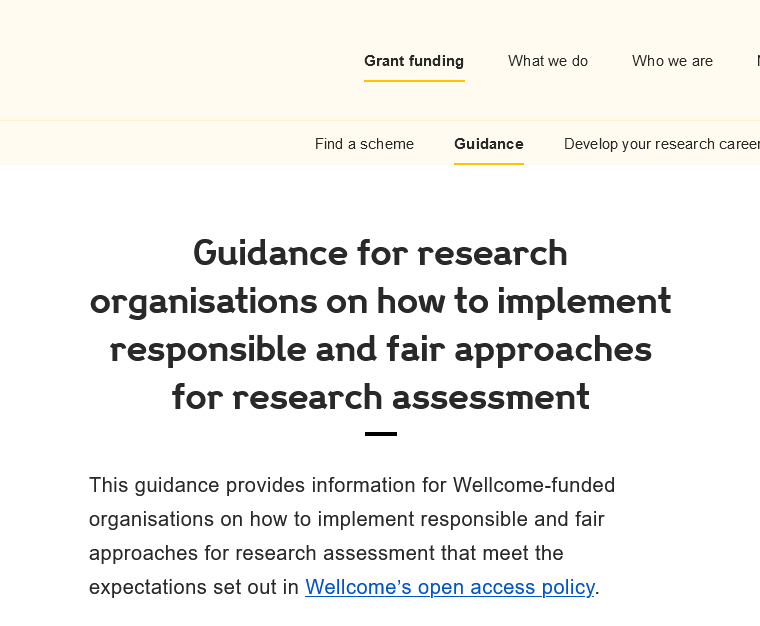
As part of its open access 2020 policy, Wellcome-funded organizations are asked to publicly commit to the principle that when assessing research outputs – for example in hiring, promotion and tenure committees – they will consider the intrinsic merit of the work, not the title of the journal, its impact factor or the publisher.
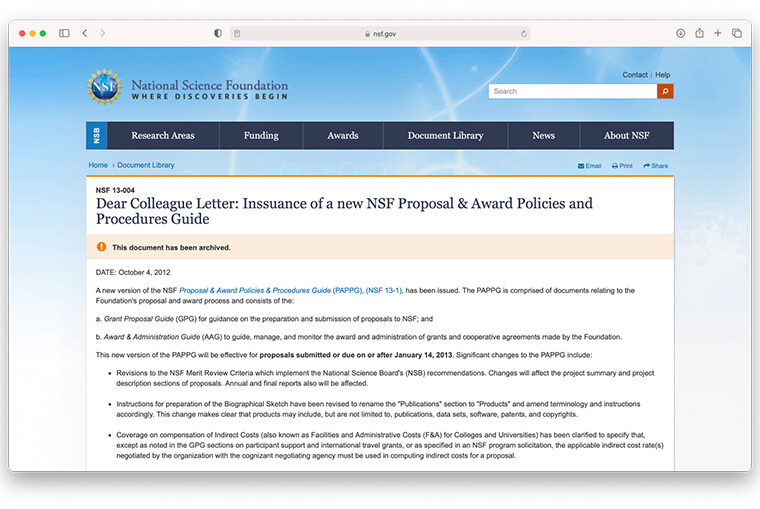
The U.S. National Science Foundation has modified its instructions to grant applicants to recognize that the outputs of scientific research include more than just publications, an idea endorsed by DORA.
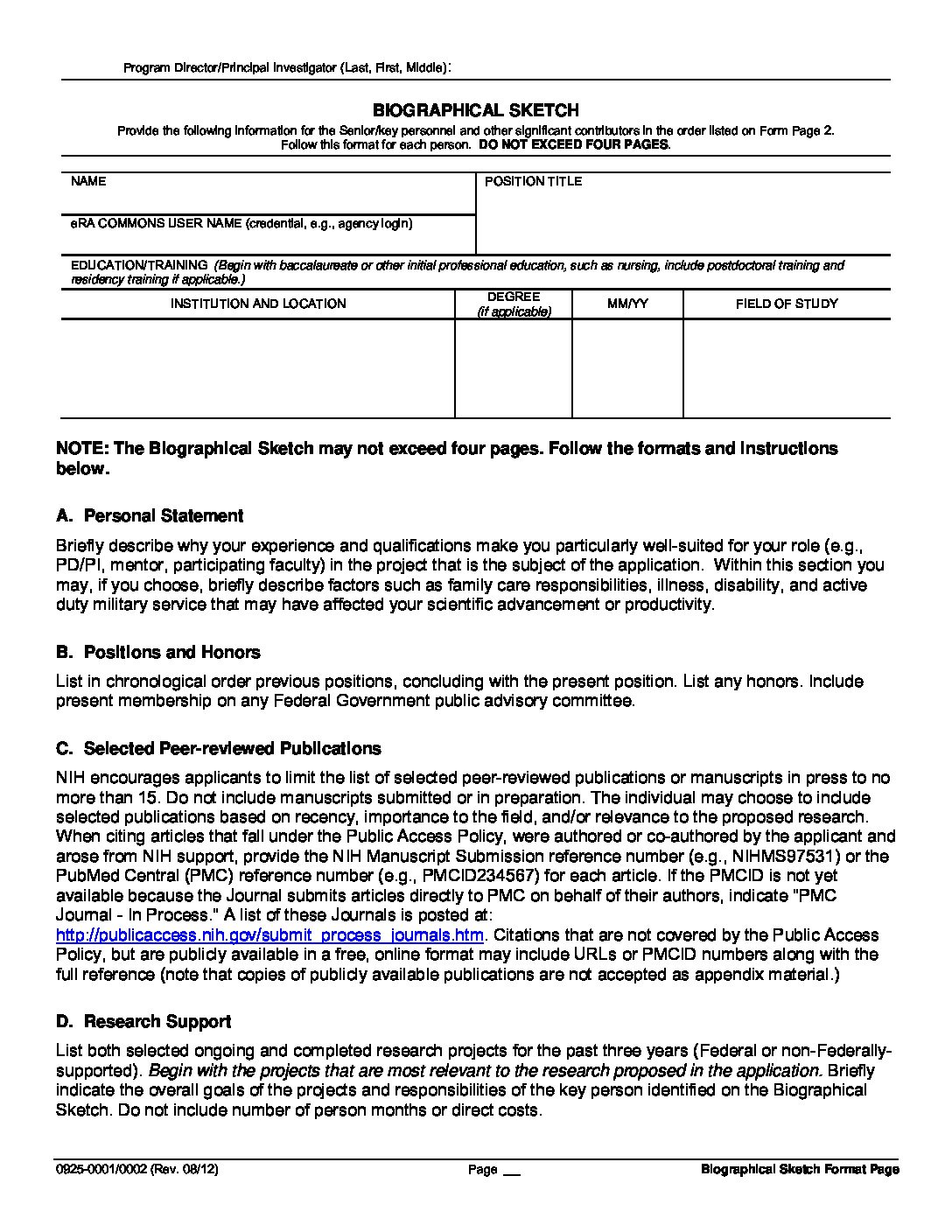
The U.S. National Institutes of Health has revised the format of the CV or “biosketch” in grant applications.
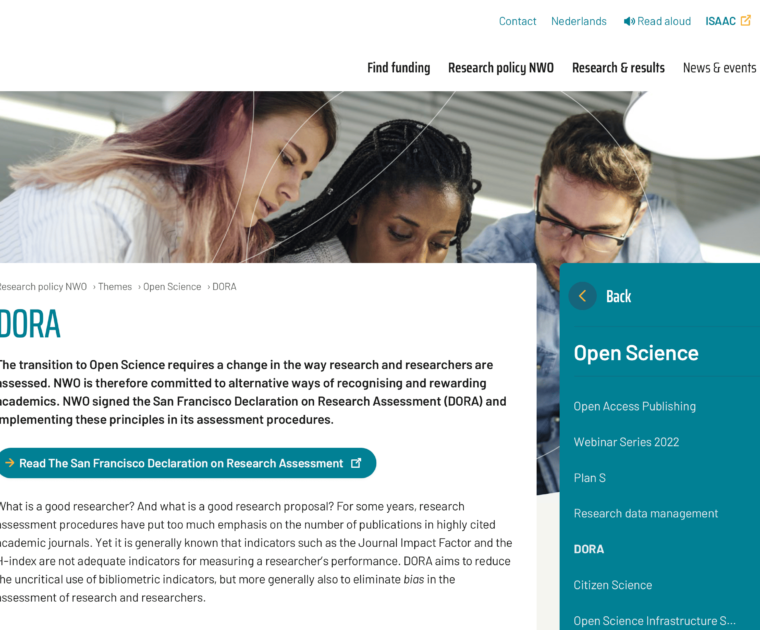
The NWO is piloting a narrative CV format for assessment of early career researchers who apply to the Veni funding scheme.
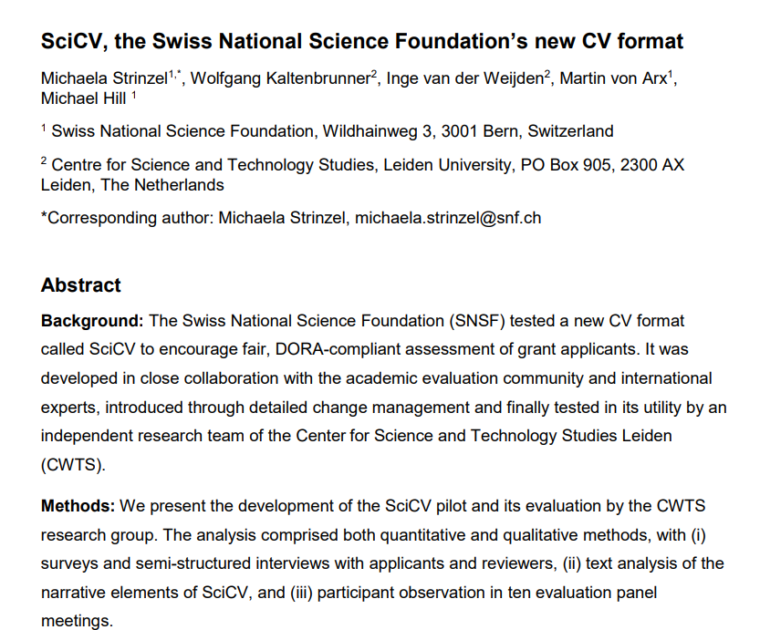
The Swiss National Science Foundation is testing a structured narrative CV format called ‘SciCV’ to increase consistency in decision-making for its grant applications.